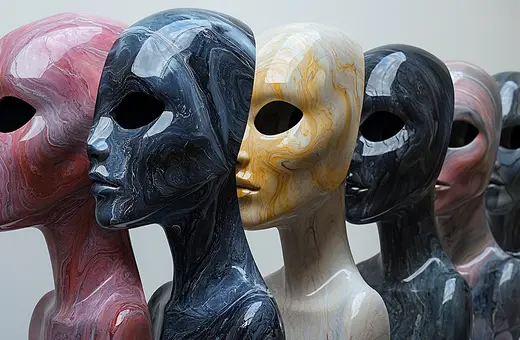Are big corporations really aiming for inclusivity by challenging the binary division between the biological sexes? Or have they simply spotted an opportunity to cash in? We must be on our guard against the latter, warns Jennifer Bilek.
In September, Tampax corporation rolled out an advertisement for their menstrual products attempting to be what they call ‘inclusive’ of all people, which erased females from their ads (both in language and visually). The advert garnered nearly 17,000 likes and 25,000 comments.
This language obfuscation is part and parcel of the burgeoning gender identity industry which seeks to obliterate sexual dimorphism from language. Purportedly this is to make people who think they are, or wish to present themselves as, the opposite sex, comfortable. These individuals make up approx. .06% of the population. It is really interesting that Tampax does not mind making women, who make up more than 50% of the population, and 100% of their consumer base, uncomfortable. Many of the 25,000 comments under the initial ad were by women furious at their erasure and the dehumanizing language used to describe them. Several suggested it was time to boycott Tampax. Why doesn’t women’s fury at their erasure from adverts for products made for their specific biology bother Tampax? Why is it happy to alienate its consumer base by calling them ‘menstruators’ and ‘bleeders’ to be ‘inclusive’?
What Is Happening Here?
What is happening here, is the promotion of the violation of the sex boundary, between human males and females, by Big Pharma and Big Tech, in effort to commoditize sex. We as a species are more profitable as parts, than we are as whole sexed beings. Think: eggs, sperm, transplantable wombs, vaginas for men, penises for women, synthetic breast milk, and more importantly our DNA. Once the boundary of male/female sex is violated and normalized through the ideology of gender identity, the doors swing open for changing human biology in extraordinary ways.
Just ask Jennifer Anne Doudna, a pioneering American biochemist who has played a key role in the developments of the gene editing process called CRISPR, for which she won a Nobel Prize (with her colleague) in chemistry this year. The Adam Bolt film, Human Nature, delved into the genetic manipulation of humans and her part in these experiments. In this film, Doudna describes having a dream, after she had made the significant discovery known as CRISPR, in which someone important wants to see her to learn more about her discovery. In the dream, she is led into an office where she sees a man, sitting in a chair with his back facing toward her. As he turns slowly, he asks her to tell her about her amazing experiments. As he turns to face her, she realizes it is Hitler. In the film, she tells us how the dream impacted her for days afterwards, making her very uncomfortable and forcing her to wonder what she had done by breaking our genetic coding.





















Join the conversation